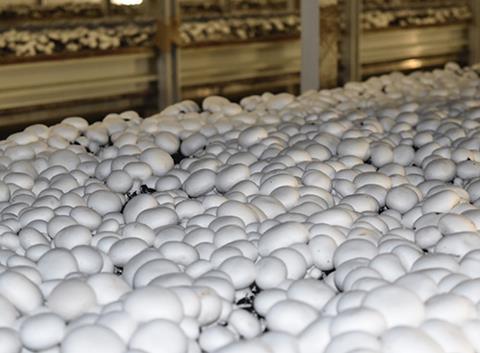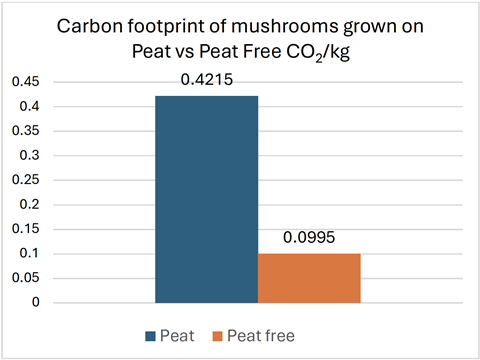Irish grower sees peat-free substrate as solution as industry transitions away from peat casing, set to be phased out by 2030

Irish mushroom producer Tiernaneill Mushrooms Ltd (TML) has announced the successful evaluation of a peat-free substrate pioneered by Harte Peat Ltd for industrial-scale production, describing at as a “major step forward” in sustainable mushroom cultivation.
Conducted at TML, the project supports the Irish mushroom industry’s transition away from peat casing, which is due to be phased out by 2030.
“This project demonstrates that industrial-scale, sustainable mushroom production is achievable without compromising quality or efficiency,” said TML operation director Des McGuigan. “It’s a key milestone for our company and for the future of the Irish mushroom sector.”
Over a seven-month period, Tiernaneill Mushrooms, which grows 200 tonnes of white and brown mushrooms a week, partnered with Harte Peat to conduct a large-scale trial across 118 mushroom tunnels on two farms, replacing traditional peat casing with a 100 per cent peat-free alternative.

Source: Goldcircle Mushrooms
Following smaller-scale trials using 30 and 50 per cent peat-free casing mixes, the project marked a major step forward, allowing Harte Peat to test, refine and analyse large volumes of peat-free material in commercial conditions.
“The trial comprised 97 white mushroom crops and 21 brown mushroom crops, generating a comprehensive dataset to evaluate performance, sustainability benefits and product viability for the wider industry,” TML said.
Rising customer demand for sustainable produce – something highlighted by TML’s own marketing company, Goldcircle Mushrooms – has persuaded it to accelerate research in order to deliver results ahead of the national deadline.
“Comprehensive life cycle assessments (LCA) show that mushrooms grown on the peat-free substrate have a 75–77 per cent lower carbon footprint compared with traditional peat casing,” the company said. “When electricity use during production is included, overall emissions remain around 68 per cent lower. Beyond reducing greenhouse gas emissions, the peat-free substrate also mitigates wider environmental impacts associated with peat extraction, including habitat loss and soil degradation.”



